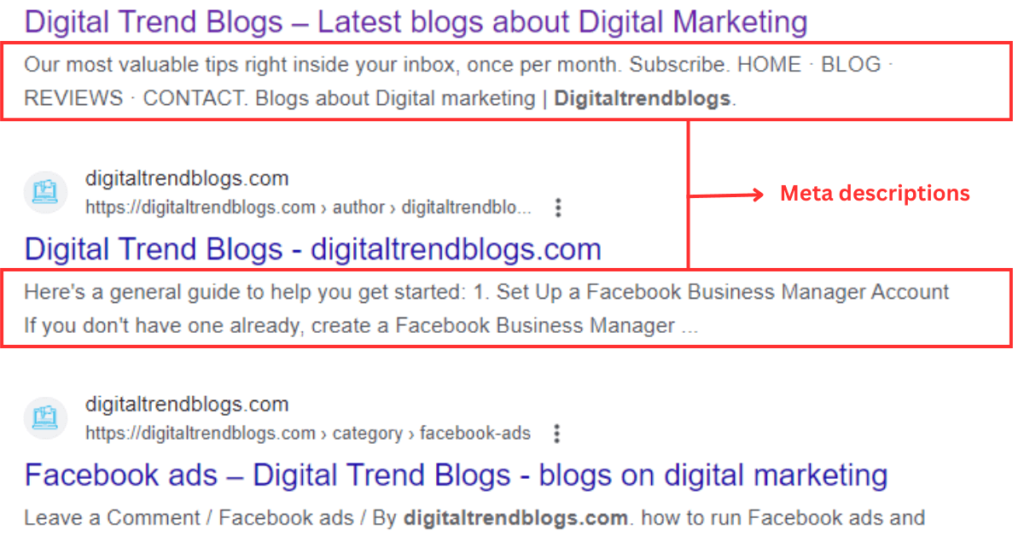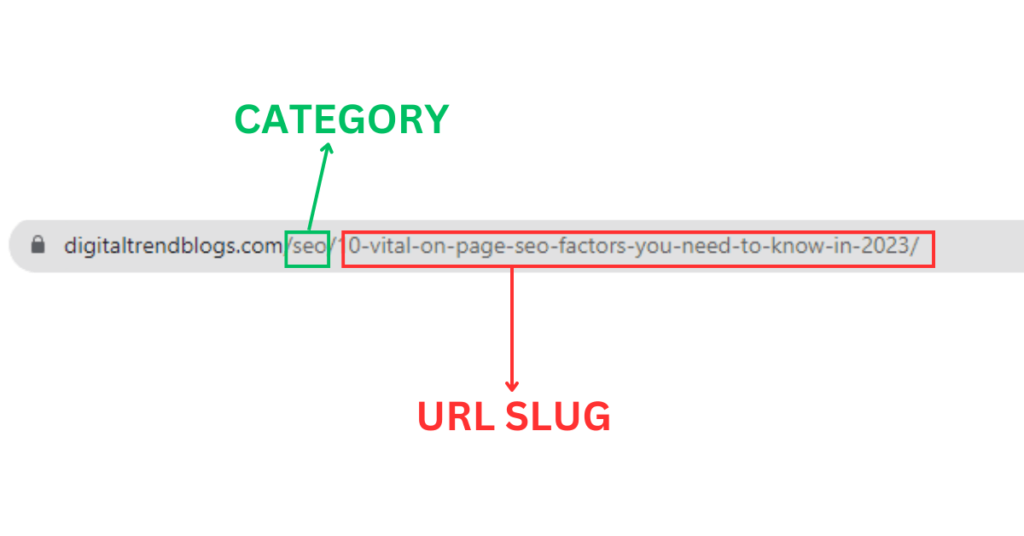Many people think that on-page SEO only involves placing keywords in different parts of a webpage. However, this is not entirely accurate.
While putting keywords in the right places still matters, it’s not as important as it once was.
Imagine your website as a ship navigating through the turbulent waters of search engine algorithms, and on-page SEO factors are the sails that catch the winds of organic traffic.
In this blog, we’ll explore the ten crucial on-page SEO factors that can help your website rise through the ranks and reach the coveted shores of the first page of search results.
What are On page SEO Factors?
On-page SEO involves the process of optimizing web pages to increase organic traffic and improve a website’s search engine rankings.
This optimization includes improving the page’s HTML structure, and internal linking, and optimizing metadata like meta descriptions and meta titles.
Additionally, it entails uploading high-quality and relevant content, as well as properly optimized images.
By integrating all these elements effectively, you create a well-optimized webpage, leading to better on-page SEO performance.
Why is On Page SEO Significant?
Good on-page SEO is important because it helps search engines understand your website, what it’s about, and how it’s useful for people searching online.
As search engines get smarter, they prioritize relevance and semantics in their results.
Google, armed with intricate algorithms, has improved its ability to:
Understand users’ search intentions when they input queries.
Present search outcomes that match user intent, be it shopping, informational, or navigational.
Hence, it’s imperative to optimize your website and its elements like media, text, images, HTML, and metadata to align with the latest practices of major search engines like Google and Bing.
Furthermore, overlooking on-page SEO is unwise, as it grants you more control over optimizing on-site factors, unlike off-page SEO, which relies on external cues such as backlinks.
By investing effort into on-page strategies, you can anticipate a surge in traffic and an enhancement of your visibility in search results.
Important On-page SEO Factors You Must Know.
Keyword Research
Keywords are the compass that guides search engine crawlers to your website. A well-designed keyword research checklist acts like a strategic map.
It’s important to carefully find out the specific words and phrases that your intended audience uses when looking for similar content.
Use these words smartly in your content, titles, short descriptions, and headings. This will make it more likely for your website to show up in search results when people search for related things.
Content
Having good content is really key for making your keywords show up in search results. The more content you have, the better chance your website has of appearing on search engines.
So, content is super important. If you’re doing SEO the right way, you’ll understand how crucial the main content is.
When you create content, remember to add your keywords and use these techniques:
- Put keywords at the beginning of your content.
- Use strong tags (like bold or headings) for your keywords, but don’t overdo it.
- Keyword density is an interesting trick. So, naturally use the keywords more times on the page to make them appear in your content more often.
Title Tags
The title tag is the first thing users see in search results, making it a critical element of on-page SEO.
Craft compelling and descriptive title tags that accurately represent the content of your page while enticing users to click.
Make sure your phrases are short, around 50-60 characters is best. This way, they’ll show completely when people see them in search results.
For further insights and tips on optimizing your title tags, take a look at our comprehensive article on maximizing the effectiveness of title tags.
Meta Descriptions
While meta descriptions don’t directly impact rankings, they attract users to click on your link.

Think of them as a snippet summarizing your content and enticing users to visit your website.
Incorporate your target keyword and make it engaging to increase click-through rates.
User-Friendly URLs
Clean and user-friendly URLs help visitors understand a page’s context and make it easier for search engines to crawl and index your content.

Put important words in your web addresses (URLs) that match what your content is about. Don’t use long, messy combinations of letters and numbers.
Header Tags for Structure
When you organize your content correctly, it makes things better for users and for SEO. To organize, use headings like “H1,” “H2,” “H3,” and so on, to separate your content into different sections and smaller topics.
Search engines look at these headings to figure out how your content is organized and what parts are more important.
Optimize Images
Pictures make your content look nice and can help with SEO.
Make pictures better for SEO by giving them names that describe them and by making their file size smaller.
This helps your webpage load faster, which is important for how users feel about your site and how it ranks in searches.
Internal Linking
Links inside your website connect different pages together. This helps people find more stuff to read and helps search engines understand and organize your website better.
Make sure your links make sense and use words that fit what the linked page is about.
Mobile-Friendly Design
Since many people use phones to go online, your website must work well on mobile devices – it’s not a choice anymore, it’s a must.
Make sure your website changes nicely to fit different screens and works well on all kinds of devices.
Page Loading Speed
In the quick online world, people don’t want to wait for slow websites.
Make your website load faster by making images smaller, using a trick that helps browsers remember things, and picking a good place to host your website.
A faster website makes people happier using it and can help your website show up higher in search results. There are many online page speed testing tools but I’ll recommed PageSpeed Insights.
Conclusion
Following these ten key on-page SEO factors can help your website do well.
Make useful content, make it match the words people search for, and make your website easy for people to use. Doing these things can help your website show up better in search results and more people can visit it without you paying for ads.
Remember, doing these things isn’t just once, it’s like a journey where you keep making things better. Good luck to getting higher up in search results and having a better future for your website!
